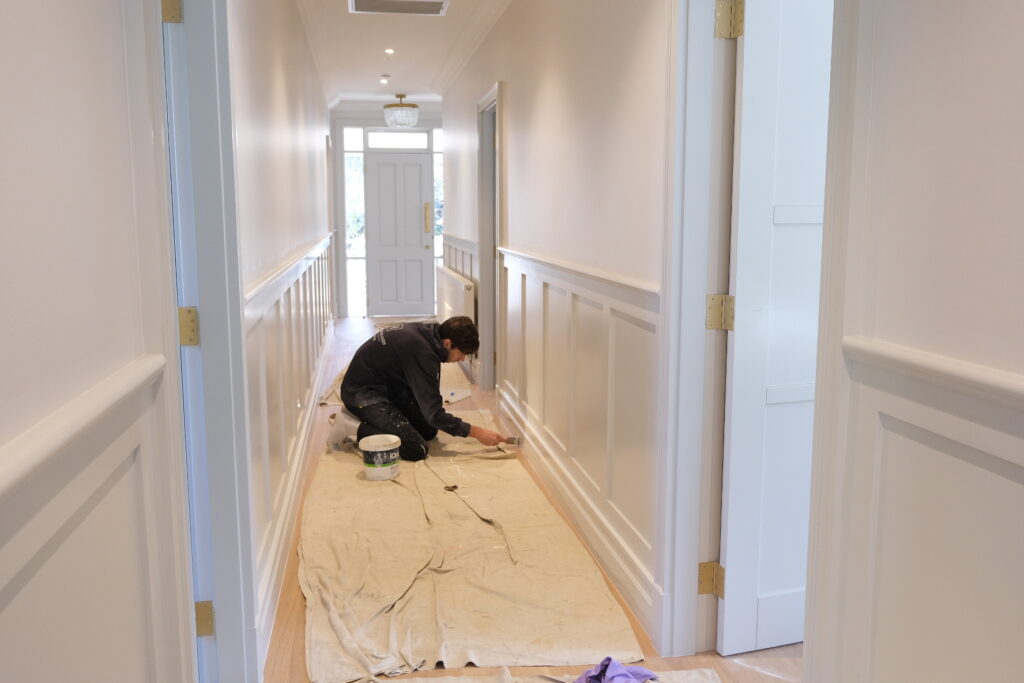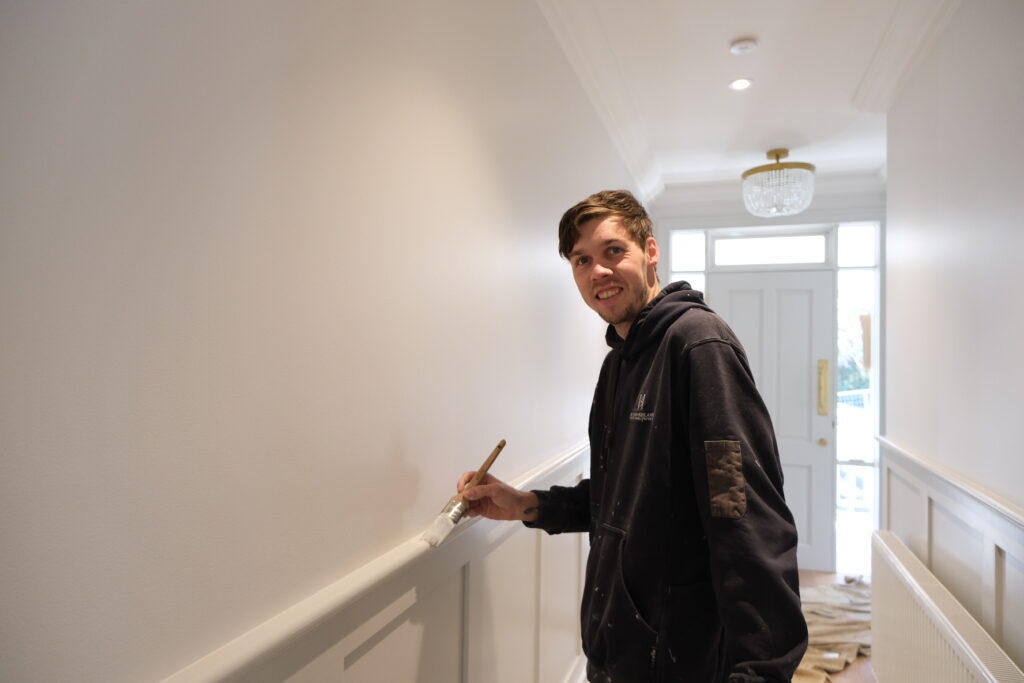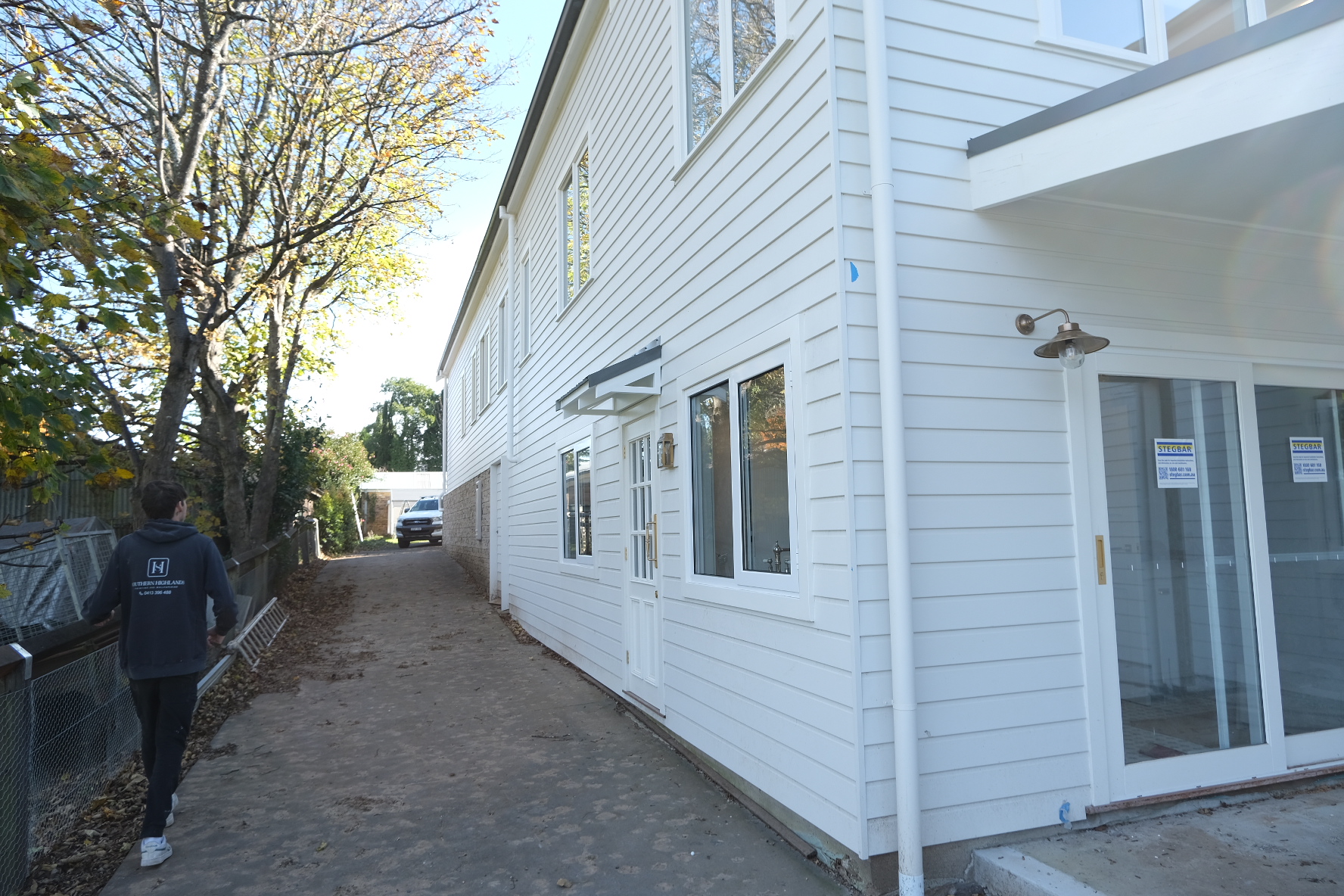If you’re planning a painting project in the Southern Highlands, chances are you’ve already heard a few stories: quotes that ballooned halfway through, unexpected extras added at the end, or painters who disappeared suddenly.
At Southern Highlands Painting & Wallpapering, we’ve seen the difference clear communication and proper quoting makes. In this blog, you’ll learn the truth about where painting projects go off track and the simple steps you can take to keep yours firmly in budget.
The Real Reason Painting Projects Go Over Budget
Here’s the truth: most of the time, the biggest costs come not from the paint , but from what’s underneath it.
It’s All in the Prep
Many homeowners don’t realise that the surface condition of your walls, ceilings, or weatherboards has a huge impact on the final cost. Cracks, peeling paint, water damage, mould, or uneven surfaces all need to be fixed before any actual painting begins. If a painter gives you a quick quote without thoroughly inspecting these areas, there’s a strong chance they’ll come back later saying, “We didn’t realise how bad it was.”
That’s where the budget blowout begins.
What You Don’t See (But Should Ask About)
You might not see the issues straight away but experienced painters will know what to look for, and they should point it out up front. If they don’t, it doesn’t mean the problem isn’t there. It just means you’ll likely pay for it later when it delays the job or requires extra work.
A Quick Quote Isn’t Always a Good Quote
Painters who quote quickly (or too cheaply) often skip a proper inspection to keep the price low and win the job. But once work begins, any hidden problems become your financial responsibility (unless it’s clearly covered in the quote) That’s how “just a few hundred bucks” turns into thousands more than expected.
Cheap Quote? Here’s What Might Be Missing
It’s tempting, isn’t it? One painter quotes $5,500 and another quotes $3,800 for what looks like the exact same job. You think, “Well, they’re both painting the same walls, why not go with the cheaper one?”
But here’s the thing: cheaper often means corners are being cut somewhere, and it’s usually not obvious until it’s too late.
The Danger of Vague or Underquoted Jobs
A low quote might not include:
- Proper surface preparation (filling, sanding, priming)
- High-quality paint (you might get a budget brand that won’t last)
- Multiple coats (some painters only apply one unless you pay extra)
- Protection for your floors or furniture
- Labour for tricky areas like high ceilings, detailed trim, or external timber
These “optional extras” can quickly turn your cheap quote into a costly surprise.

What to Check For in Every Painting Quote
When comparing quotes, don’t just look at the bottom line. Look at the breakdown. A clear quote should include:
- A detailed list of what surfaces are being painted
- The number of coats
- The type and brand of paint
- Whether prep work like sanding, patching, or cleaning is included
- Any exclusions (this is key)
If a quote is vague or looks too simple, that’s a red flag. A well-priced quote might seem higher up front, but it’s usually because it covers everything properly.
How to Spot a Transparent (and Honest) Painter
Let’s be honest: some painters are just trying to get the job. They’ll say what they need to say to win the quote and deal with “extras” later. But the “worth-it” painters? They lay it all out from the start, even if it means the quote takes a bit longer or looks more expensive upfront.
Questions to Ask Before Signing Anything
To protect your budget, ask these key questions before agreeing to a quote:
- “Can you walk me through what’s included, and what’s not?”
- “What happens if extra prep work is needed after you start?”
- “Is this a fixed price or an estimate?”
- “Will you use drop sheets and take care of furniture protection?”
- “Can I see examples of similar jobs you’ve done in the Highlands?”
A painter who’s honest won’t hesitate to answer. They’ll likely appreciate the fact that you’re doing your homework.

Signs Your Painter Is Being Upfront
- They offer to inspect the job thoroughly before quoting.
- The quote is itemised, not just a single figure.
- They’re clear about what could increase the cost, and why.
- They encourage questions, rather than rushing to book you in.
- They put everything in writing, not just promises over the phone.
If a painter seems vague, avoids specifics, or pressures you to “just lock it in,” that’s usually a sign they’re not thinking long-term.
Protecting Your Budget: Simple Steps You Can Take
Here are some smart, practical steps you can take to stay in control of your painting budget.
1. Get Multiple Quotes (But Compare the Details)
Always get at least two or three quotes—but don’t just compare the total. Look at:
- What surfaces are being painted
- How much prep is included
- What paint is being used (brand and type)
- Number of coats
- Any stated exclusions or “extras if needed”
This helps you compare apples with apples, not apples with oranges.
2. Ask for a Fixed Price Where Possible
If your painter is confident in the scope of work, they should be happy to provide a fixed price. That means you won’t be stung with unexpected charges unless you change the job.
For tricky projects where unknowns exist (like hidden damage), a good painter will explain the risks and give you a price range upfront—not just hit you with a surprise later.
3. Don’t Rush the Quote Process
Painters who take the time to inspect properly, ask questions, and explain their quote are usually the ones who care about doing the job right. Rushed quotes often lead to rushed (and risky) work.
4. Put Everything in Writing
Make sure the quote is in writing, includes GST, and clearly states what’s included, and what’s not. If anything is unclear, ask before the job starts. Once the job’s underway, your bargaining power drops.
Ready to Paint Without the Surprises?
At Southern Highlands Painting & Wallpapering, we believe the best projects are the ones where everyone knows exactly what to expect. No vague pricing. No hidden extras. Just solid advice and a finish you can be proud of.
If you’re planning a painting project in the Southern Highlands and want a quote that’s clear, honest, and free of unwanted surprises, let’s chat. At Southern Highlands Painting & Wallpapering, we take the time to do it right from the start, so you stay in control of your budget from beginning to end.
Call us today or request a free, detailed quote that covers all the bases.

